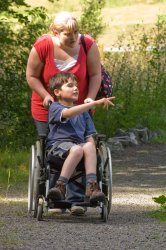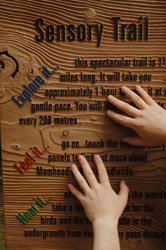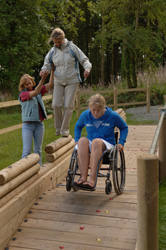Summary
What do disabled people think about recreation in woods and forests?



Summary
Answering the challenges of the equality and diversity agenda means learning more about the expectations and needs of different woodland and forest users, including disabled groups. This study by Strathclyde Centre for Disability Research explored how disabled people used recreational facilities to make recommendations to the Forestry Commission regarding equality of access and service improvement.
Key findings
Positive attitudes and experiences in woodland:
- Stimulates different senses
- Relieves and helps to ‘get away from it all’
- Outdoor challenges to extend skills and experience
Barriers to disabled people’s access:
- Attitudes – many disabled people feel they are not ‘expected’ in the countryside
- Lack of appropriate facilities and equipment
- Poor provision of information in suitable formats
- Lack of suitable transport
- Emphasis on people with physical impairment
- ‘Overprotective’ service provision
Publications and presentations
Funders and partners
Funded by the Forestry Commission Scotland, commissioned by Forest Research and undertaken by the Strathclyde Centre for Disability Research, University of Glasgow.
Status
This project was completed summer 2008.
Contacts
General Content
Related pages
- Equal access: the contribution of Scottish woods to recreation for disabled people
- Equal access: enhancing access for disabled people to recreation opportunities, facilities and services in Scottish forests
- Evidence review: Equality and inclusion of social diversity with respect to woods and forests in the UK
- People, trees and woodlands
- Society and diversity in relation to trees, woods and forests
